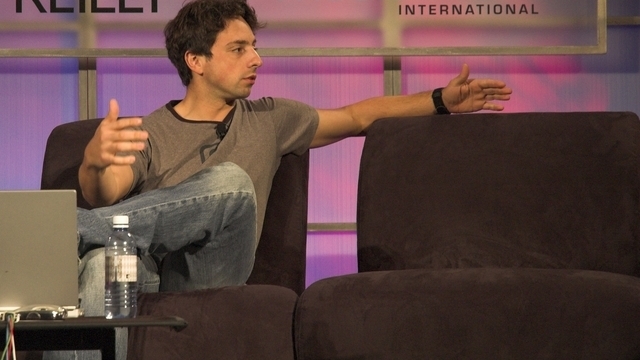
The cofounders of some of the Internet's most successful startups have put out a letter condemning the Stop Online Piracy Act. It warns that SOPA will undermine online security, burden future web startups, and "censor the web using techniques similar to those used by China, Malaysia and Iran."
The strongly-worded letter is signed by Google's Sergey Brin, Yahoo's Jerry Yang, eBay's Pierre Omidyar, Netscape's Marc Andreessen, three cofounders of Twitter, and a number of other Internet luminaries. According to CNet, it is slated to appear as an ad in the New York Times and other newspapers.
The release of the letter comes on the eve of a Thursday markup on SOPA before the House Judiciary Committee. SOPA sponsor—and Judiciary Committee Chairman—Lamar Smith (R-TX) released a tweaked version of SOPA earlier this week, but the changes haven't mollified critics, who continue to condemn it as an Internet censorship bill.
One of the signers of the anti-SOPA letter was Wikipedia's Jimmy Wales, who has also requested opinions from the Wikipedia community on the possibility of protesting SOPA by temporarily replacing all English-language Wikipedia pages with a page of anti-SOPA information. Wales's proposal is modeled after a similar action by the Italian edition of Wikipedia back in October to protest a censorship proposal then before the Italian parliament.
Comparisons between SOPA and censorship in repressive regimes enrage MPAA chairman, and former Senator, Chris Dodd. Speaking at the Center for American Progress on Tuesday, he called such comparisons "absolutely reprehensible." Dodd cited a recent op-ed by famed First Amendment advocate (and frequent Hollywood lawyer) Floyd Abrams, who said that such comparisons "trivialize the pain inflicted by actual censorship that occurs in repressive states throughout the world."
Dodd and Abrams seem to be attacking a straw man. No one claims that the blacklisting scheme envisioned by SOPA would be as bad as the the political censorship in force in China or Iran. But the proposal does use many of the same means—blacklists, intermediary liability, technology bans—as are employed in repressive regimes. If the US government adopted these techniques in the United States, it would obviously weaken its credibility to criticize other governments when they use the same means to pursue what everyone agrees are more reprehensible ends.
Listing image by Photograph by ptufts
reader comments
122